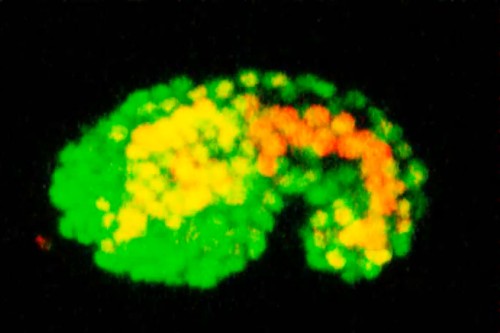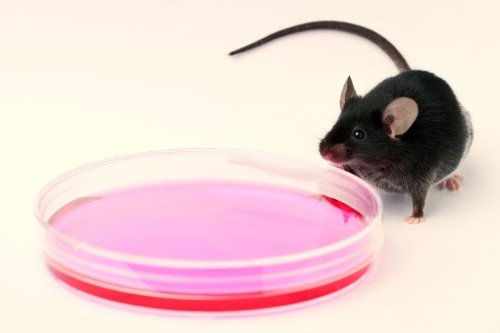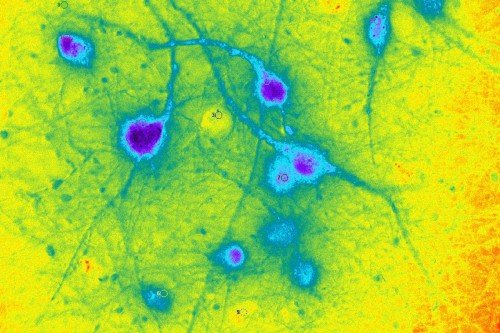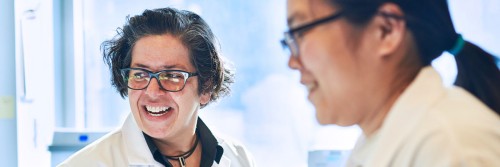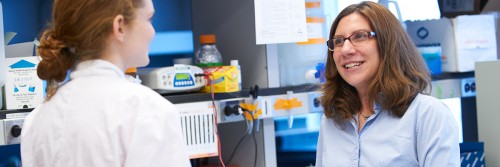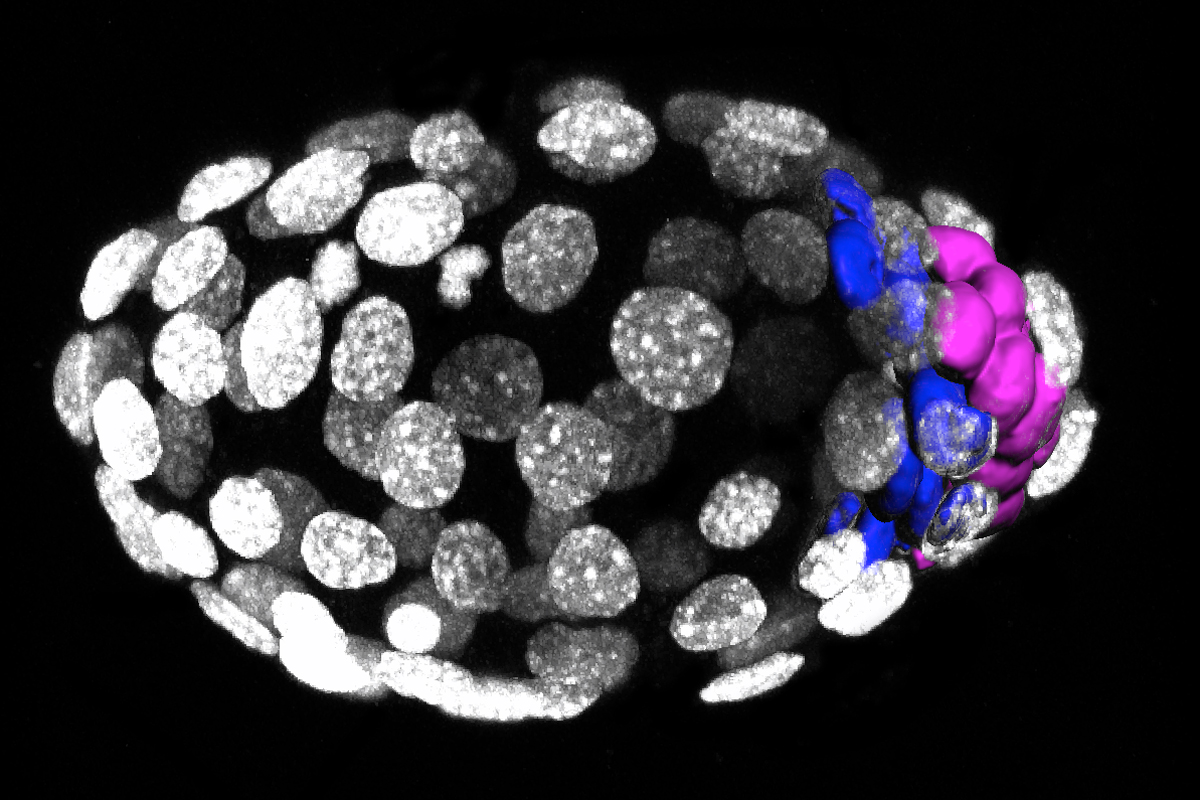
An early structure of a developing mouse embryo called a blastocyst, imaged by confocal 3-D microscopy. The colored areas represent cell layers called the epiblast (pink) and the primitive endoderm (blue). (Courtesy of the Anna-Katerina Hadjantonakis lab.
Developmental biology studies the processes by which the single cell of a fertilized egg grows and develops into a mature animal. Our researchers use an array of experimental tools to understand the genetic signals that direct cells to differentiate into specialized tissues and organs, how this process affects regeneration and aging, and how disruption of normal development gives rise to cancer.
